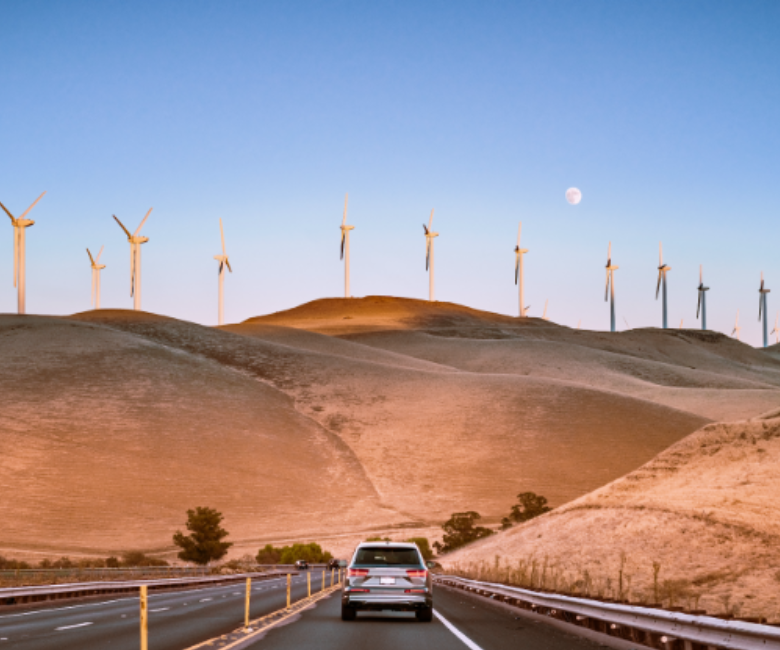
Vehicle Sustainability Trends to Look for in 2024
- Vehicle Maintenance
- PEAK
- February 13, 2024
2024 is looking to be a transformative year for vehicle sustainability. The auto industry is making headway with the following vehicles trends. See below!
Gas-powered vehicles are significant contributors to climate change. According to the US Department of Energy, highway vehicles are responsible for 1.5 billion tons of greenhouse gases released into the atmosphere each year.
With nearly 300 million vehicles on the road in 2023, other factors similarly impact the environment. For example, auto components like car tires account for 78 percent of the microplastics in the ocean. At the same time, water from highway runoff contains pollutants, including oil, grease, and heavy metals, contaminating water and harming aquatic life.
Simply put, highway vehicles are one of the most innovative and world-changing products ever invented. They are also a major problem for environmental sustainability.
It’s a problem that is steadily improving, and the auto industry got much greener in 2023 as everything from electric vehicles to sustainable vehicle technology experienced widespread adoption.
2024 could be another milestone year for vehicle sustainability. Here are the top trends to look for in the year ahead.


Electric Vehicle Demand Will Continue to Increase
Electric Vehicle (EV) sales reached an all-time high in 2023, hitting a record of 9 percent of passenger vehicles sold in the US and marking the first time more than one million all-electric EVs were sold in a single year.
In 2024, EV sales will continue to grow. While external factors like macroeconomic conditions and pricing parameters will influence the numbers, Bloomberg predicts that unit sales could increase by 20 percent in the year ahead.
With a significant update to the federal clean vehicle credit in 2024, buyers could be further incentivized to make the all-electric leap. Starting in January 2024, eligible consumers can transfer their $7,500 federal tax credit to a dealer, lowering the point-of-sale price and making EVs significantly more affordable for more people.
Charging Stations Will Be More Accessible
Other than cost, range anxiety and charger availability are the most significant hurdles to EV adoption. While this problem won’t be solved in 2024, it will improve significantly.
Meanwhile, Tesla will make 7,500 Supercharger and Destination Charger network stations available to non-Tesla EVs by the end of 2024. Additionally, several companies, including Hertz, BP, General Motors, and others, have announced they are building a national network of EV fast-charging infrastructure to accelerate EV adoption.
When coupled with growth in home charging and other infrastructure upgrades, EV charging will undoubtedly improve in 2024.


Car Care Products Will Evolve
As more EVs hit the road, more products will be developed that cater to this increasingly popular category of cars.
PEAK is at the forefront of this trend, with a full suite of car care products customized for electric vehicles (EV / AEV), battery electric vehicles (BEV), hybrid electric vehicles (HEV), and plug-in hybrid electric vehicles (PHEV). We are dedicated to meeting today’s vehicle demands and anticipating tomorrow’s advancements in alternative fuels and fluids.
But advancements in car care products won’t be limited to electric vehicles in the coming year. In 2024, sustainability will be extended to all vehicle care and maintenance. For example, OWI has developed an environmentally friendly, plant-based antifreeze that will be released early in 2024.
Hybrids Will Make Gas-Powered Vehicles More Sustainable
Even as EVs receive most of the attention on environmental sustainability, gas engineers are continuing to become more efficient, and hybrid models are attracting buyers as a best of both worlds product that balances ecological impact and cost.
Hybrid vehicle sales soared in 2023, increasing by nearly 50 percent in the first three quarters, and they’ve nearly doubled in the past three years. As a result, some car manufacturers, like Toyota, are doubling down on hybrids, investing in even more efficient gas-powered vehicles.
In other words, EVs aren’t the only path to sustainability in the car industry. In 2024, hybrids will continue to be a good option for environmentally conscious but more budget-constrained or range-prohibited consumers.
Sustainable Materials Will Become More Common
Automakers are quickly committing to more sustainable materials for their products. The 2024 Kia EV9 has received much attention in this regard, but expect to see more sustainability across automakers and within product lines in the coming year.
This includes using recycled or upcycled materials, like carpet made from recycled fishing line, and replacing petroleum products, like plastic dashboards, with bioplastics. Even high-end details like rich wood paneling are being replaced by reclaimed wood or even cork. Recycled plastics, plant-based vegan leather and recycled steel will also find their way into more new vehicles in 2024.
A More Sustainable Year Ahead
From the rise of EVs to advancements in environmentally friendly fluids and auto components, it’s clear that the auto industry is poised for a transformative year in 2024 — with sustainability taking center stage. Let OWI be your partner as you prioritize sustainability. Get in touch to learn more about how our industry-leading products are helping support sustainability in the car industry.

